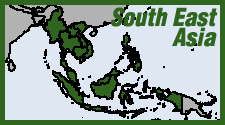 President Rodrigo Duterte's ultra-hardline anti-drug policies took center-stage in the Philippines last week as the country's Senate held televised hearings on the matter. By now, the National Police force has acknowledged that its troops have killed 1,506 suspected drug dealers or users since Duterte took office in June. (Amnesty International, adding those killed by unaccountable "vigilantes," puts the figure at 3,000.) Duterte openly boasts that the killings will continue. The hearings heard impassioned testimony both for and against this lawless crackdown.
President Rodrigo Duterte's ultra-hardline anti-drug policies took center-stage in the Philippines last week as the country's Senate held televised hearings on the matter. By now, the National Police force has acknowledged that its troops have killed 1,506 suspected drug dealers or users since Duterte took office in June. (Amnesty International, adding those killed by unaccountable "vigilantes," puts the figure at 3,000.) Duterte openly boasts that the killings will continue. The hearings heard impassioned testimony both for and against this lawless crackdown.
One explosive moment reported by the New York Times was the confession of Edgar Matobato, who said he had served as a hit-man in a death squad overseen by Duterte in Davao City—where he had long served as mayor, and where his local reign of terror provided the model for the current national crackdown. Matobato said the death squad, known as the Lambada Boys, had killed hundreds over the years, and that he had personally participated in some 50 murders. One victim was fed to crocodiles, he said, while others were hanged and thrown into the sea. Matobato estimated some 1,000 criminal suspects and political opponents were killed by the Lamabada Boys and related outfits—collectively known as the Davao Death Squad—in the years Duterte was mayor. "We were tasked to kill criminals every day," Matobato said.
And Matobato made clear that Duterte, elected mayor in 1988, was the man in charge of this campaign of murder—he even said that he had heard Duterte personally order killings. He also said that in 1993, he watched Duterte persinally shoot to death an agent of the National Bureau of Investigation with an Uzi submachine gun. Reports on the shooting at the time did not mention Duterte, and the president's office denied the charges.
Whatever the truth may be, it is certainly grim. The Philippine Commission on Human Rights finds that the Davao Death Squad killed 206 people between 2005 and 2009. Sen. Leila de Lima, a longtime rights advocate who chaired the hearings, stated: "Perhaps we can link what is happening now to what happened in Davao City in the 1990s until the present, and how the Philippines now mirrors the city of Davao under the two-decade rule of Mayor Duterte." (Duterte of course accuses de Lima of taking bribes from drug lords, the LA Times notes.)
Complicating things is the widespread support Duterte continues to get from the Philippine left. He has won popular plaudits by pledging to restart the peace dialogue with the communist New People's Army (NPA) guerillas—officially launched in the '90s but long stalled. He even appointed an NPA veteran to his cabinet. Duterte's government and NPA representatives met in Oslo on Aug. 26 to sign a formal bilateral ceasefire in preparation for new talks. As a gesture of good faith, the NPA released three police officers they had been holding. (CNN, Aug. 28; Philippine Star, Aug. 22; Bulatat, June 28)
The National Democratic Front of the Philippines (NDFP), the civilian left-wing alliance that is representing the NPA in the peace proces, is pretty openly enthusiastic about Duterte. It went so far as to issue a statement praising Duterte for his controversial tirade against Barack Obama after the US president raised human rights concerns about his rule. (Amusingly, the statement actually uses the word "tirade" to refer to Duterte's remarks, even while "lauding" them.) The statement read: "US imperialism's sham 'concern for human rights' is being challenged with open hostility by a government it considers its reliable lackey. The US government should be reminded and brought to justice for the millions of deaths in its hands, perpetrated in the name of consolidating its imperialist power over other sovereign states."
The "tirade" the NDFP is defending apparently included calling Obama a "son of a whore"—although Duterte later said that he had actually been refering to the reporter who had asked him about Obama's criticisms. (Radio Australia, Sept. 8) This was among a series of tirades in which Duterte blasted the US for its double standards on human rights. And indeed police terror is a grave problem in the US—obviously. But how exactly does that let Duterte off the hook? The same human rights groups now raising the alarm about his government have been harshly critical of the wave of police killings in the United States.
A peace deal with the NPA would be a good thing, of course. But while Duterte is broaching peace with the commuist rebels, he has declared a "state of lawlessness" (an ill-defined variant of martial law) over Islamist terrorism in Mindanao, the southern island where Davao is located. And, ironically, a key demand of the NDFP and other advocates of a just peace in the Philippines is an end to the paramilitary terror being unleashed against ecology activists and peasant leaders who are standing up to mining, logging and agribusiness interests. Mindanao is also the center of this terror campaign—and it is very hard to believe that there is no overlap between the Davao anti-drug death squads and the right-wing paramilitaries in the service of big business.
Cross-post to High Times







Recent comments
2 weeks 9 hours ago
2 weeks 15 hours ago
5 weeks 1 day ago
6 weeks 15 hours ago
10 weeks 22 hours ago
13 weeks 6 days ago
17 weeks 6 days ago
18 weeks 4 days ago
28 weeks 4 days ago
32 weeks 5 days ago